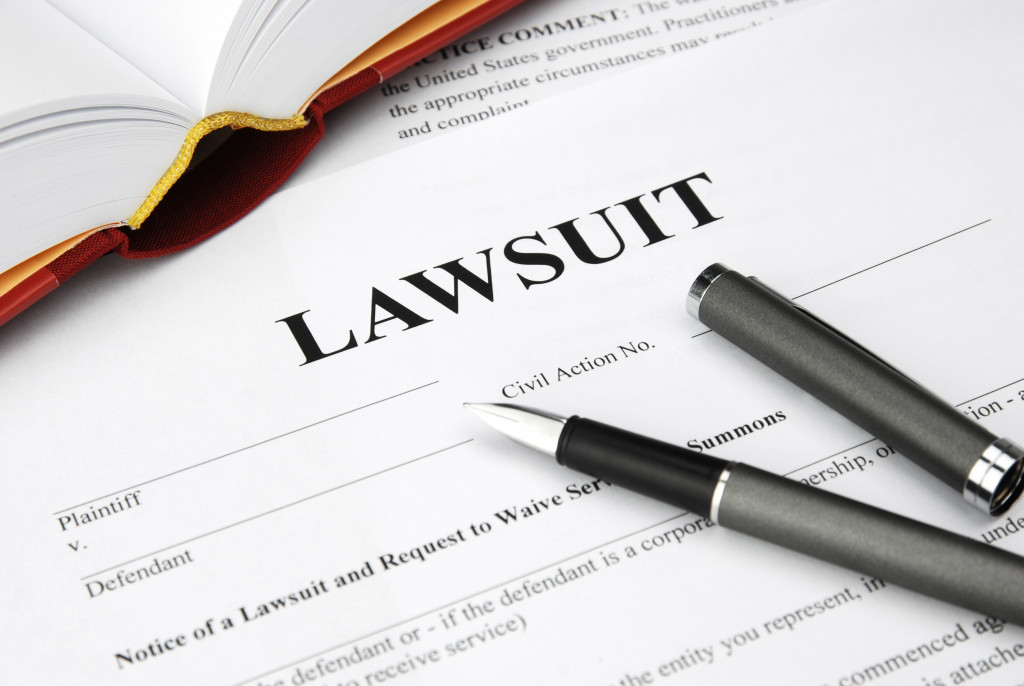- Research applicable laws and regulations to maximize chances of success in legal proceedings.
- Prepare relevant court filings, documents, evidence, and testimonies before submission and become familiar with applicable statutes.
- Understand the legal process of submitting a lawsuit to ensure proceedings are done correctly.
- Determine court jurisdiction to ensure the case can be heard within the proper jurisdiction.
Filing a lawsuit can be intimidating, but it doesn’t have to be. Anyone can successfully submit a lawsuit with the proper preparation and understanding of the system. Before submitting your case, there are several vital things to consider to maximize your chances of success.
These include researching applicable laws and regulations, determining which court has jurisdiction over the dispute, deciding if mediation or arbitration is better suited for the situation at hand, assessing potential costs associated with litigation such as filing fees and attorney’s fees, familiarizing yourself with relevant statutes of limitation and procedural requirements set forth by local courts.
Be ready with legal documents and knowledge.
Here are some tips to help you prepare the legal documents and knowledge when filing a lawsuit:
Research applicable laws and regulations
Researching applicable laws and regulations is an essential step before submitting a lawsuit. You need to properly understand the jurisdiction’s legal parameters to save resources, effort, and time in court or avoid having your case dismissed.
Start by content researching all possible cases at the local and state level, then consult a qualified attorney for further legal guidance on procedure and potential outcomes. Relevant court documents are also helpful for refining arguments and finding favorable precedents.
Prepare the documents needed.
Preparing the necessary documents before submitting a lawsuit is essential to ensure that the case progresses correctly. It is crucial to have all relevant evidence and testimonies in line, as well as any contracts or agreements that may strengthen a case.
In addition, preparing the relevant court filings – including requests for additional information claims and counterclaims – should also be done ahead of time to help optimize organizational efficiency when submitting a lawsuit. Having these documents ready beforehand helps speed up the entire process and propel it closer to success.
Familiarize yourself with relevant statutes
It is essential to properly familiarize yourself with relevant statutes of limitation and procedural requirements set forth by local courts when preparing to file a lawsuit. Familiarizing yourself with these rules and regulations ensures that your filings are valid, complete, and legally sound.
Furthermore, it’s essential to be aware of applicable statutes of limitations as this information has a bearing on the validity of your case and whether it will be accepted by the court. Additionally, familiarizing yourself with procedural requirements helps expedite the process of submitting a lawsuit and receiving a determination based on the case’s merits.
An ineffective procedure, in this context, can cost you time, money, and resources, so it is highly advisable to thoroughly understand the statute of limitations and procedural requirements before submitting a lawsuit.
Understand the legal process
It is essential to gain a comprehensive understanding of the legal process associated with submitting a lawsuit. Obtaining this knowledge helps ensure that proceedings are correctly handled, as missing an important deadline or failing to follow protocol could impact the suit’s outcome significantly.
Consulting reliable resources such as qualified attorneys will help you to be fully informed about the applicable state and federal laws, filing requirements, and other factors related to the case. Additionally, reaching out to those who have gone through a similar issue can help you get accustomed to practical matters like timelines and court schedules.
Determine court jurisdiction

It is essential for anyone considering submitting a lawsuit to understand court jurisdiction and make sure their case can be heard within the proper jurisdiction. It is optional to have expert knowledge of the US legal system. However, it may be useful to research the topic or consult a lawyer to make an informed decision.
Knowing which court has proper jurisdiction for the specific case, who the parties are eligible to sue, and any other relevant information can help the plaintiff ensure their best chances of a successful resolution. Failing to properly determine court jurisdiction when suing may result in dismissed claims and costly delays that can put one in an even more difficult position than before.
Assess potential costs

When pursuing litigation through the courts, it is important to assess potential costs associated with the process. This includes filing fees, service of process fees, court reporter fees, and any other non-attorney fees.
Attorney’s fees should also be evaluated in accordance with different alternative ways in which legal representation could be procured that may cost less – such as consulting an alternative dispute resolution practitioner or mediator. Cost assessment is an integral part of proper litigation strategy so that parties can evaluate the financial risk of proceeding through legal action rather than alternative dispute resolution processes.
Understanding these costs upfront will ensure both timeliness and accuracy when budgeting for resources to pursue a case. Additionally, properly assessing a potential lawsuit can help cultivate a more methodical approach to decision-making amongst all parties considering how best to resolve their differences.
These are just a few of the key things to consider when submitting a lawsuit. With proper research, preparation, and understanding of the court system, anyone can successfully submit a case and get the resolution they are looking for.



